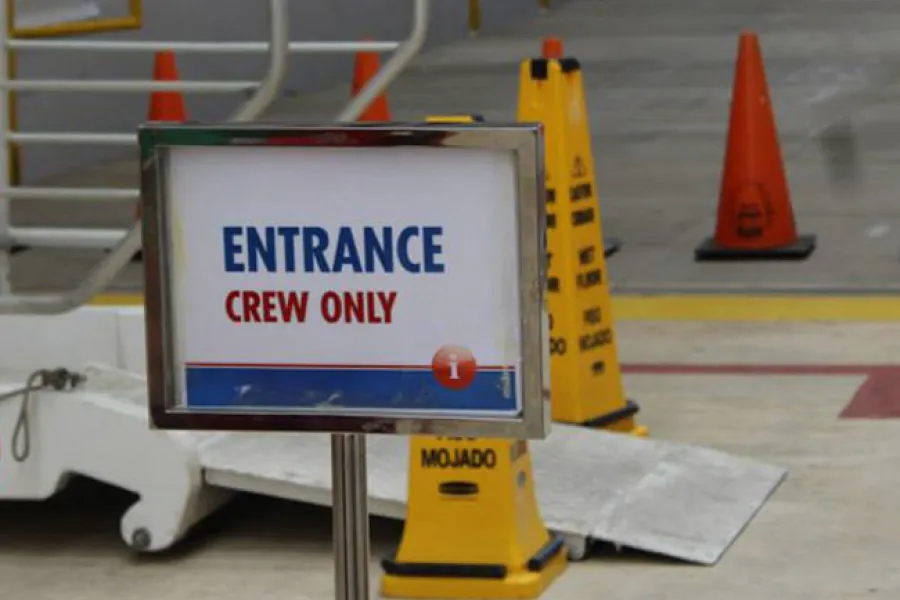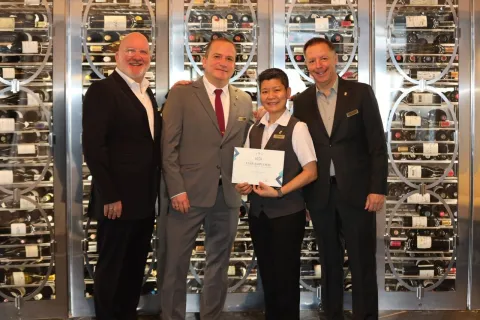
At some point during our contract at sea, we all encountered cranky, bitter colleagues and subordinates onboard ships. More often than not, it is “unpleasant and discomforting” each time you deal with such difficult people. But the fact remains that we time and again, have to face them for our remaining days onboard. Sometimes, the reason is not clear enough if someone decides to dislike you, whereas at other times, despite knowing the reason, you feel there is nothing much you can do about it. Either way, you have to find a way to deal with such types of seafarers on board a ship.
Horrid situations are sometimes built up, some even at the spur of the moment triggering professional sabotage. Dealing with such seafarers at sea with little or no psychological aid can be worrisome. While you can’t instigate them into liking you all of a sudden, you surely can work on your shortcomings and lessen the negativities, at least to say professionally.
Change is good, and so is the change of atmosphere at work. Professional barricades at sea can lead to an unsafe work culture. According to the grapevine, one of the reasons behind such behavior is the imminence of other pessimistic co-workers in the workspace, in this case, onboard the ships.
So, how does one go about controlling the aggravating situation onboard by getting indirectly involved in amending the attitudes of such difficult people towards you?
Handle such seafarers carefully.
Tyrants seem to be everywhere, onboard ships too. Dealing with unreliable autocrats, who seem to have a thing for backstabbing or are simply jealous of your work, can be a bit complicated. These guys who have their knives on you can prove to be a thorn in the stem of your performance.
Such seafarers can be treated by understanding the real issues behind their actions towards you, talking to them directly, or getting others to talk about them. If you are willing to work together, things should be more or less sorted out. You should strictly stick to the basics and keep your attitude professional. Show them your good side by resolving their issues. Be watchful of what you share with them in general. And lastly, be firm in your limitations using utmost discretion.
Set your limits and confront
Setting limits with rudely behaving seafarers must be done if you notice something they have said or done was bad. Confrontation is not the way out, especially at sea, which can only worsen things. Facing the same difficult people often is another occupational jolt. So, if this problem persists and you have tried communicating unsuccessfully, it is always better to approach the departmental heads and discuss the matter with them clearly. And yes, do involve the other party as well.
Breaking the Ice
Another simple technique to deal with such unpleasant seafarers is having a positive attitude.
‘Forcing’ a change of attitude in them towards you might not help; instead, take the first step by interacting with them and by also involving them inexplicitly considering their opinions, advice/suggestions, or conclusions. A possible way to break the ice can be by complementing them well.
Offer some help
Humans, in general, are emotional. Seafarers do not have the psychological advantage over many personal issues, chiefly because they are away from their families and friends for a long time. This fact could easily trigger a boiler. Offering help to such a tricky person and demonstrating an eagerness to comprehend the person’s frustration should be your best step. Time is valuable at sea, so keep in mind that you must maintain this relationship for strictly professional reasons. Do not go overboard in trying to act pacifier.
Spend time with difficult people.
Getting to know your co-seafarer better is great. It is also noticed that having fun during get-togethers or being socially present aboard makes a lot of difference in improving interpersonal relationships. Avoid alcohol onboard as far as possible. We all know the sidekicks of it and especially when trying to adapt to difficult people.
Getting mentally battered and letting it affect your work is not the answer when dealing with such cohorts, especially when seeing the same faces over time. From having a healthy work environment at sea to being productive professionally, sound relationships go a long way together.
Working on ships is a “team effort.” A “one-man show” cannot run the whole ship. In order to perform operations smoothly and safely on board ships, good interpersonal relationship among seafarers is a must.
As the number of people on board ships is of different backgrounds, there are high chances of ego clashes and dissatisfaction among crew members. As important as it is to avoid politics on ships, it is equally important to enhance the interpersonal relationships between people on board to ensure that all jobs are done smoothly and safely.
Working on ships is a challenging task, and dissatisfaction and demotivation can easily be developed among seafarers due to various stresses.
During such a situation, it is the job of the staff captain, chief engineer/Chief officer/captain to eliminate discontent among people on the ship and instill the importance of interpersonal relationships.
As the number of people working on board is limited, everyone should try to know each other to understand the values, knowledge, and skills each has. This is the first step towards developing interpersonal relationships on board ships.
However, the chief engineer/captain/chief officer should take additional steps, as mentioned below, to ensure that all team members are comfortable with each other on and off work.
1. Morning meetings (Toolbox meeting): The morning meeting, which assigns work to team members, is the best time to get all the crew members together. Crew members must talk to each other during such meetings and discuss their views and opinions.
Each member should be given a chance to provide suggestions regarding improvement of the work process and safety precautions to be taken. This activity gives members a sense of responsibility and importance and also works a great deal in enhancing their performance and interpersonal relationships.
2. Tea-Breaks: Tea breaks can work wonders towards enhancing “team effort.” It should be made compulsory to get all crew members together during tea breaks to discuss the work in progress and other important things that they feel are necessary.
3. Onboard training sessions: Onboard training session is yet another important opportunity to get crew members together to impart important working knowledge or conduct safety committee meetings. The captain and chief engineer should arrange the meeting in such a way that a maximum crew members are able to participate.
4. Spending free time together: Post working hours, officers and crew members often spend time in their rooms instead of getting together in the officer or crew lounge. Watching movies and playing games in your free time is a solid way to know each other and build great relationships on and off work.
5. Arranging events/sports days: It is necessary to arrange recreational events or sports days that require crew members to participate in teams. This is a great way to inculcate the importance of team spirit and building interpersonal relationships among crew members.
6. Parties and Get-togethers: Everyone likes to party and unwind once in a while. The party is a great way to bond people and improve scarred relationships on board ships. However, they must be arranged in such a way that a maximum crew can participate. Festival celebrations are also a great way to enhance interpersonal relationships between people onboard.
The methods mentioned are some of the main ones that are used onboard to enhance relationships on board ships. Doing this would ensure smooth and safe operations of the ship and improve productivity and employment satisfaction.
Crew Insights
Articles and experiences shared by crew members working on cruise ship. Find out more about ship life at sea together with tips and advices for first time crew members and cruise oldtimers.












